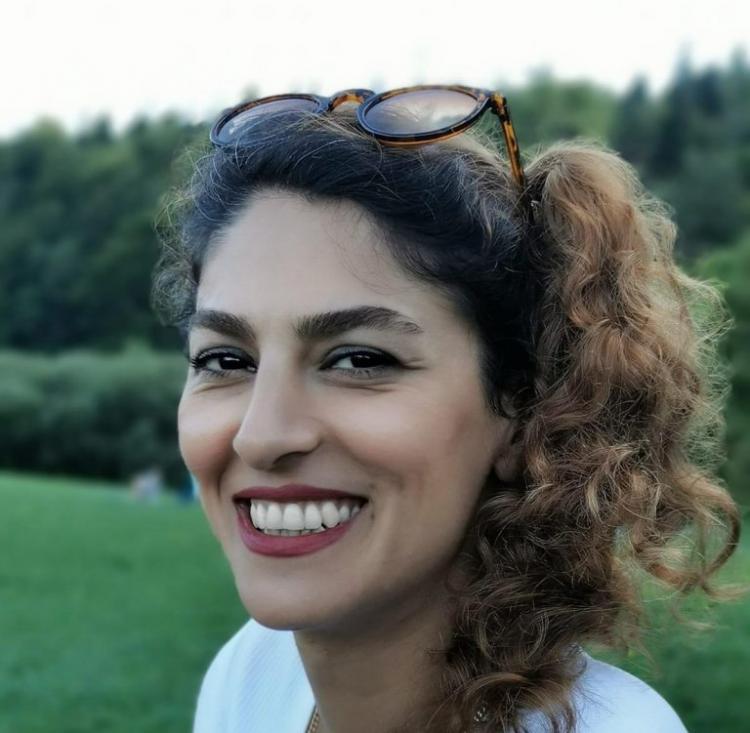We will resist anyone who wants to separate and weaken us
Shiva Nazar Ahari, human rights activist and journalist from Iran, currently ICORN resident in Ljubljana City of Refuge, was interviewed in December 2019 by Neža Vilhelm, collaborator of Slovene Writers' Association. The interview is published in Vrabec Anarhist - Literature and Thinking Portal, where they talk about literature, culture and society in Iran as well as dictatorship, internet-shut down, media capture and sanctions on the Iranian people.
Find the whole interview, We will resist anyone who wants to separate and weaken us, at Vrabec Anarhist
An excerpt from the interview:
- Iran is a big country with different people in different places and cities. Large cities are mostly modern with modern amenities, and in some historic cities this modernity combines beauty with monuments. Life in Iran is probably no different from other parts of the world, except in the social freedom, freedom of speech and, of course, the dictatorship government. There is a huge system of censorship and people are always controlled by the government. If you come to Iran, everything looks normal to you. We go to work, sometimes we go to a cafe, to a party and … there is a huge underground life in Iran. For example, drinking alcohol is not allowed in Iran, but you can find it in every home. I mean, there are two kinds of life, the one you can see in the street, and the one you see at people’s homes.
I have read this note today and I think it’s a good explanation about our life in the Middle East. It’s about what happened in Iran last week (I don’t know who wrote it):
“I’ve been asked several times what it’s like to be a middle eastern. Here is my answer: the government blocks the internet, isolates its citizens, and suppresses protesters, while the rest of the world falls silent because they think that’s normal in the middle east.”
About Shiva Nazar Ahari
Shiva Nazar Ahari was born in 1984 in Tehran. As a journalist and human rights activist, she has reported extensively on social issues in Iran, such as child labour, the treatment of political prisoners, extreme poverty and women's rights.
Her articles have been published in prominent news websites such as Radio Zamaneh, she has contributed to the Student Committee for the Defence of Political Prisoners; and has published for the Committee for Human Rights Reporters (CHRR), of which she is a founding member.
Nazar Ahari’s work is recognised with nominations and awards, such as the 2013 Reporters Without Borders nomination for the Netizen Award; the 2012 Theodor Haecker prize for Honesty and Political Courage - on reporting about human rights violations, and the 2010 American Islamic Congress Award for the Advocate Behind Bars, which is given to imprisoned lawyers who are recognised as ‘prominent civil activists who have had extraordinary leadership power and have had a dramatic impact on society and are now unfairly imprisoned.’
As Nazar Ahari campaigned with a group of activists during the 2009 presidential election, and expected candidates to comply with women's demands, she was arrested and sentenced to six years in prison, along with many others. She was threatened with execution by hanging. After pressure from the international community, notably the International Writers' Association, PEN International, she was released from prison after two years. Today he lives and works in Ljubljana under the auspices of ICORN.
Latest news
-
18.04.24
-
04.04.24
-
26.03.24
-
21.03.24
-
08.03.24







